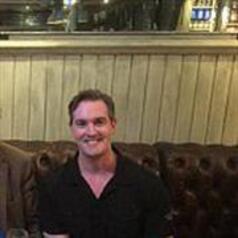
Niall Richardson
Senior Lecturer, Gender and Media, University of Sussex
I've been teaching at the University of Sussex since 2007. Prior to that, I was a lecturer at the University of Sunderland.
I convene MA Gender and Media.
My research focuses on the representation of minority groups in film and media - especially how these identifications intersect with gender and sexuality politics. I have written about the representation of lesbians and gays, disability, transgender identifications and ageing.
Monographs:
2009 'The Queer Cinema of Derek Jarman: Critical and Cultural Readings' (I B Tauris)
2010 'Transgressive Bodies: Representations in Film and Popular Culture (Ashgate)
2018 'Ageing Femininity on Screen: The Older Woman in Contemporary Cinema' (I B Tauris)
2022 'Trans Representation in Contemporary Popular Cinema' (Routledge)
Edited Collections:
2011 'Critical Readings in Bodybuilding' (Routledge)
2013 'Film and Gender' (Routledge)
2020 'Cross Generational Relationships and Cinema' (Palgrave)
Textbooks:
2013 'Studying Sexualities: Theories, Representations, Cultures' (Palgrave)
2013 'Gender in the Media' (Palgrave)
2014 'Body Studies: The Basics' (Routledge)
Education
M.A (University of St. Andrews)
P.G.C.E (Queen's University Belfast)
M.A (University of Ulster)
PhD (University of Ulster)
Less ![]()
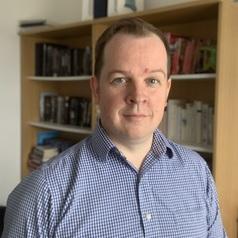
Niall G MacKenzie
Professor of Entrepreneurship and Business History, University of Glasgow
Professor Niall G MacKenzie FRSA is a three-time graduate of the University of Glasgow. He currently serves as the joint Editor in Chief of Business History.
Prior to re-joining the University, he worked at the universities of Cambridge, Wales and Strathclyde in the fields of entrepreneurship and innovation. To date he has raised over £10m in research income. His research interests are in the areas of business history, entrepreneurship, innovation, and regional development with a particular focus on Scotland and Scotch whisky.
Less ![]()
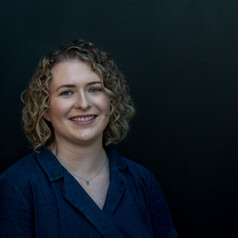
Niamh Chapman
Senior Research Fellow, Hypertension and Patient Engagement, University of Sydney
I am a blood pressure researcher that focuses on 'people and systems' to tackle the leading cause of death and disability in Australia and worldwide. I work closely with people from our communities who have lived experience of high blood pressure to develop educational and digital health tools to improve the management of high blood pressure. I am completed my PhD in 2021 at the university of Tasmania, for my PhD project I developed a health station that used a touchscreen app to control a blood pressure machine so that people could have their blood pressure measured while they waited for a blood test at pathology services.
In 2023 I moved to the University of Sydney where I am a Senior Research Fellow and co-lead Patient Engagement of the Australian Hypertension Taskforce which is endorsed by the Federal Minister for Health with the goal of improving blood pressure control from 32% to 70% by 2030. My current work is focused on empowering patients to navigate the management of high blood pressure through effective delivery of education in services people already use, like pharmacy.
Less ![]()
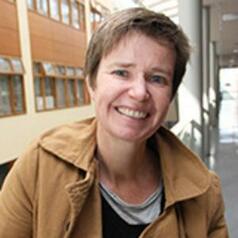
Niamh Gaynor
Associate Professor of International Development, Dublin City University
Niamh was appointed to DCU's School of Law and Government in 2009 where she is currently an Associate Professor of International Development.
She holds a PhD in Sociology from Maynooth University, and an MSc in Rural Development and a BSc (hons) in Botany and Mathematics, both from University College Dublin. She has worked with a number of development agencies and NGOs conducting field research and project evaluations in Africa and Central Europe.
Her research focuses on how social and political inequalities are produced and reproduced. Her work to date has focused on exploring the conditions under which more marginalised groups and communities wield political influence at local and national levels. She has conducted field research in a wide range of African countries (most recently, Burundi, DRC, Rwanda and Malawi), as well as in Ireland. Her recent book (2022), Engendering Democracy in Africa: Women, Politics and Development is published by Routledge and is freely available on Open Access here. She is currently (2022-2023) working on a co-edited book on the history of development education in Ireland. This is co-edited with Eilish Dillon (Maynooth University), Gerard McCann (Queen's University) and Stephen McCloskey (Centre for Global Education, Belfast).
Niamh also serves on the editorial board of Policy and Practice - a Development Education Review. She also regularly serves as a reviewer for a wide range of international journals and book publishers.
Research interests
The politics of development, participation and governance - in Africa and in Ireland; civil society and community; media and development.
Less ![]()
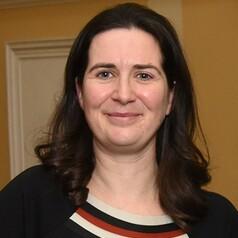
Niamh Humphries
Senior Lecturer, RCSI Graduate School of Healthcare Management, RCSI University of Medicine and Health Sciences
Niamh is a Senior Lecturer in the RCSI Graduate School of Healthcare Management. She has been researching health workforce issues for the past 17 years and currently leads a HRB-funded research project focused on hospital doctor retention and emigration.
Less ![]()

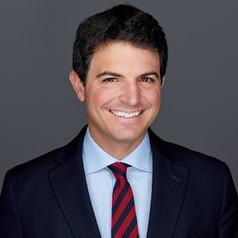
Niccolò Pisani
Professor of Strategy and International Business, International Institute for Management Development (IMD)
Niccolò Pisani is Professor of Strategy and International Business at IMD. His areas of expertise are strategic management and international business, with emphasis on globalization, sustainability and digitization. One of Niccolò’s key areas of interest is corporate social responsibility – his research in this stream has recently focused on inequality and sustainable cities.
Less ![]()
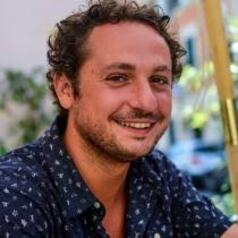
Niccolo Francesco Meriggi
Postdoctoral Research Fellow, University of Oxford
Niccolò is an applied microeconomist with a regional focus on Sub-Saharan Africa. His research sits at the intersection of academia, policymaking and practice. He primarily uses experimental methods to understand policy and governance challenges, and test solutions to overcome these challenges under political, institutional, technical and resources constraints. Implementing those projects has involved wide ranging collaboration with other scholars locally and internationally, significant international fundraising and developing skills in managing large and complex projects. He has lived in all of the countries where he has conducted research, including Sierra Leone, where he was based for nearly eight years and worked for the International Growth Center. Niccolò's research has been published in journals across disciplines, including the American Economic Review, the Journal of Development Economics, Nature, Science, and Science Advances.
Less ![]()

Nichol Castro
Assistant Professor of Communicative Disorders and Sciences, University at Buffalo
Prof. Castro’s research focuses on word retrieval in aging adults and adults with language impairments (e.g., aphasia, dementia), with a particular focus on how words are organized in memory. Her research uses behavioral studies and computational modeling
Less ![]()

Nichola D. Gutgold
Professor of Communication Arts and Sciences, Penn State
Nichola D. Gutgold is professor of communication at Penn State University, Lehigh Valley campus. She is author of a number of books and scholarly articles on women in politics including: Electing Madam President: When Women Run, Women Win; Gender and the American Presidency: Nine Presidential Women and the Barriers They Faced, co-authored with Diana Carlin and Theodore Sheckels.
Less ![]()
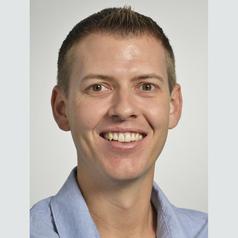
Nicholas Archer
Senior Research Scientist, Human Health, CSIRONicholas Archer joined CSIRO as a Post-doctoral fellow in 2012 after successfully completing his PhD at the University of Technology Sydney in human genetics and cell biology. He is currently a Senior Research Scientist working in the Human Health programs Diagnostic Group in Health and Biosecurity (since 2021) and previously with the Sensory and Consumer Science team in Agriculture and Food (2015-21). Nicholas has broad research interests that span the breadth of his research experience, including human physiology, genetics, nutrition, precision nutrition/medicine, human phenotyping, food and consumer science.
As a research scientist at CSIRO, Nicholas has designed, led and managed many small and large-scale, multidisciplinary, human studies evaluating flavour perception, food preferences, eating behaviour, personalised nutrition, satiety, flavour release and determinants of obesity. A focus of these studies included the development of novel phenotyping methods, the collection of diverse range of clinical samples and analysis techniques (e.g. RNA-seq, real-time PCR, SNP genotyping), and the integration of digital technologies. Additionally, he has demonstrated the ability to continually develop relevant original/novel scientific ideas, led and contributed to a number of food industry based projects, developed extensive project management skills and the ability to lead diverse multi-disciplinary teams.
Less ![]()
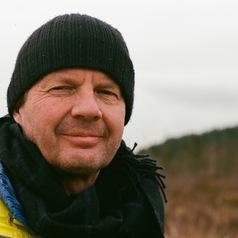
Nicholas Blomley
Professor of Human Geography, Simon Fraser University
Expert in legal geography
Less ![]()
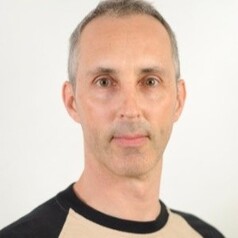
Nicholas Bourne
Senior Lecturer, Applied Sport and Exercise Science, University of East London
I am Chartered Physiotherapist and Senior Lecturer in Applied Sport and Exercise Science at the University of East London where I teach on the Master’s degree in Strength and Conditioning.
I have been fortunate as a Physiotherapist and Performance Specialist to work with many elite athletes including Track and Field World Record holders and 18 National Football League (NFL) first round draft picks.
In recent years my focus has switched to applying strength and conditioning to a more senior population with a particular focus of reducing falls in the elderly.
Recent research includes:
Wehner-Hewson N, Watts P, Buscombe R, Bourne N, Hewson D. Racial and Ethnic Differences in Falls Among Older Adults: a Systematic Review and Meta-analysis. J Racial Ethn Health Disparities. 2022 Dec;9(6):2427-2440. doi: 10.1007/s40615-021-01179-1. Epub 2021 Nov 16. PMID: 34786654; PMCID: PMC9633486.
Qualifications:
Undergraduate—Liverpool University School of Physiotherapy (MCSP)
PhD—University of Texas at Austin
Honorary Physiotherapist at Southend University Trust
Postural Stability Instructor (PSI) with Later Life Training
Less ![]()
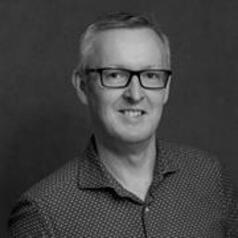
Nicholas Daly
Professor of Modern English and American Literature, University College Dublin
I came to UCD in 2005 as Chair of Modern English and American Literature, having taught for ten years at Trinity College Dublin. I have also taught at Wesleyan University, CT (Spring, 1994/5), and Dartmouth College (Fall 2003/4). Most of my work has been on nineteenth- and twentieth-century fiction and drama, though I have also written about early cinema and visual culture, and I have a strong interest in popular literature and culture. I would be happy to supervise graduate research in Victorian and twentieth-century popular literature in particular. I am or have been on the advisory boards of the Journal of Victorian Culture, Novel, Cusp, and the Irish University Review.
My most recent monograph, Ruritania: A Cultural History appeared from Oxford University Press in 2020; Oxford World's Classics published my linked edition of Anthony Hope's bestseller, The Prisoner of Zenda the same year. In 2023 I published a new edition of Arthur Conan Doyle's first Sherlock Holmes novel, A Study in Scarlet, for Oxford World's Classics. Current projects include a collaborative AHRC project with Aoife Monks on Dion Boucicault, and with Thomas Keymer the planning of a three-volume Cambridge History of London in literature.
Research:
Victorian and twentieth-century literature and culture, popular culture.
Recent Projects: Ruritania: A Cultural History, a book-length project on imaginary European territories, from The Prisoner of Zenda to The Princess Diaries; an edition of The Prisoner of Zenda. An essay on Victorian popular fiction for the Routledge Handbook of Victorian Literature.
Current Projects: an edition of Arthur Conan Doyle's novel, A Study in Scarlet, for Oxford World's Classics. One of the editors of the planned 3-volume Cambridge History of London in Literature.
Less ![]()
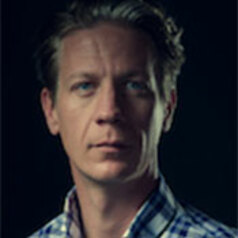
Nicholas De Dominic
Associate Professor of Writing, USC Dornsife College of Letters, Arts and Sciences
Nik De Dominic is the author of Goodbye Wolf (The Operating System '20) and Your Daily Horoscope (New Michigan Press '15). He holds an MFA in Creative Writing from the University of Alabama, where he was an Alabama Prison Arts + Education Fellow. His essays and poems have appeared in Guernica, Los Angeles Review, DIAGRAM, and elsewhere. De Dominic is a founding editor of the The Offending Adam and the Poetry Editor of the New Orleans Review. With Kate Levin, De Dominic co-founded and co-directs the Dornsife Prison Education Project.
Less ![]()
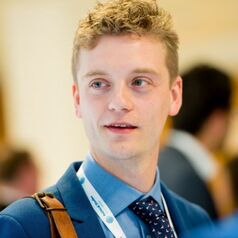
Nicholas Dickinson
Bingham Fellow in Constitutional Studies, University of Oxford
Dr Nick Dickinson is an expert in British and Commonwealth comparative politics, working primarily in the areas of parliamentary studies and public policy. My doctoral research focused on remuneration for political work, with an emphasis on the regulation of salaries and expenses of MPs in ‘Westminster’-style democracies. His current research programme as Bingham Fellow aims to produce an interdisciplinary approach to constitutional studies.
Less ![]()

Nicholas Dynon
Doctoral Candidate, Centre for Defence & Security Studies, Te Kunenga ki Pūrehuroa – Massey University
Nicholas holds a B.A. Hons and an M.A. in Asian Studies from the Australian National University and a Master of International Studies with Honours from the University of Sydney. He is a Certified Counter Terrorism Practitioner (CCTP) (Counter Terrorism Certification Board), Associate Protection Professional (APP) (ASIS International), and Security Risk Management Professional - Country (SRMP-C) (INSSA), and holds a Certificate of Approval in the classes of Security Consultant and Private Investigator (New Zealand Ministry of Justice). He is the recipient of the 2022 New Zealand Outstanding Security Performance Award (OSPA) for Lifetime Achievement.
Less ![]()
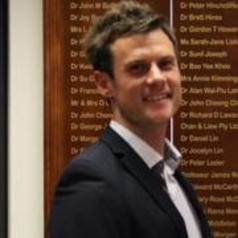
Nicholas Fuller
Research Fellow, Clinical Trials Development and Assessment, University of Sydney
As a researcher at the University of Sydney my work focuses on the causes, prevention and treatment of obesity and metabolic disorders. Having worked in the industry both corporate and academic for over 10 years, I have had the pleasure of investigating a broad range of topics including dietary & exercise programmes, complementary medicines, commercial weight loss programmes, medical devices, bariatric surgery, satiety hormones, and the economics of obesity. The importance of a holistic approach to the treatment of overweight and obesity is something I am particularly passionate about implementing and dispelling the myth that one solution can fit all.
Less ![]()
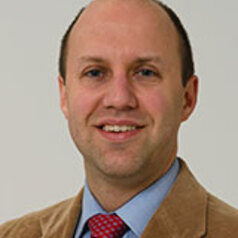
Nicholas Gelbar
Associate Research Professor, Department of Educational Psychology, University of Connecticut
Dr. Gelbar worked from 2014-2019 at the Autism Center at the Hospital for Special Care as a Psychologist, and as a researcher at the University of Connecticut University Center for Excellence in Developmental Disabilities. He is a Licensed Psychologist, National Certified School Psychologist, and a Board Certified Behavior Analyst at the Doctoral Level. He has training and expertise in Neurodevelopment Disabilities (including Autism Spectrum Disorder), Learning Disabilities, and Gifted/Talented individuals including those who also have disabilities (also referred to as Twice Exceptional).
Less ![]()
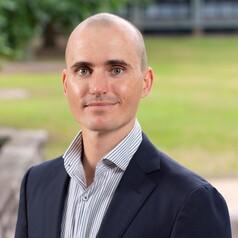
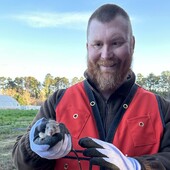
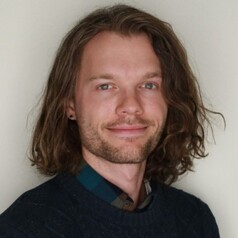
Nicholas Hunkins
Researcher in Data Science, University of Colorado Boulder
Nick Hunkins holds a master's degree in computer science, a bachelor's degree in mathematics, and has experience in both industry data-driven software development and academic research. Deeply concerned about the commodification of attention, particularly among young people, he believes in the importance of mindful engagement in the digital age.
Less ![]()
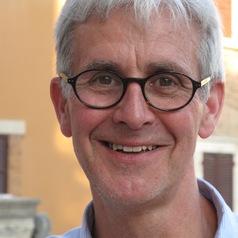
Nicholas Jose
Professor of English and Creative Writing, University of Adelaide
Nicholas Jose’s most recent novel is The Idealist (2023). He is adjunct professor with the Writing and Society Research Centre at Western Sydney University and emeritus professor of English and Creative Writing at the University of Adelaide. He was general editor of the Macquarie PEN Anthology of Australian Literature (2009).
BAHons ANU 1973
Cultural Counsellor, Australian Embassy Beijing 1987-90
Taught ANU (1978-86), University of Adelaide, Chair of Creative Writing, 2005-08, WSU, 2008-12
Visiting Harvard Chair of Australian Studies 2009-11
Professor of English and Creative Writing, School of Humanities, The University of Adelaide, 2012-
Adjunct Professor, Writing and Society Research Centre, Western Sydney University, 2012-
Author of 7 novels, 3 collections of short stories, a memoir and essays, mostly on Australian and Asian themes.
Less ![]()
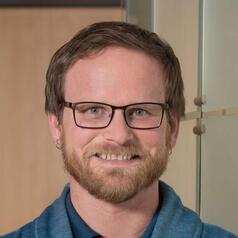
Nicholas Kassebaum
Adjunct Professor in Health Metrics Sciences and Professor of Anesthesiology and Pain Medicine, University of Washington
Nicholas Kassebaum, MD, is an Adjunct Associate Professor in Health Metric Sciences at the Institute for Health Metrics and Evaluation (IHME) and an Associate Professor in the Department of Anesthesiology and Pain Medicine at University of Washington. He has been involved with the Global Burden of Disease (GBD) study and the Cost-Effectiveness research teams since 2010 and now leads the GBD research team on maternal, neonatal, and child health (MNCH). In this role, Dr. Kassebaum researches the burden of disease and effectiveness of interventions for improving survival and health of women, children, and adolescents. He has a special interest in women’s health and equity, pregnancy health, and multiple child health issues including congenital birth defects, hemoglobinopathies, prematurity and low birth weight, child growth failure, anemia, oral and dental health, and neonatal complications arising from infections, jaundice, and asphyxia.
Less ![]()
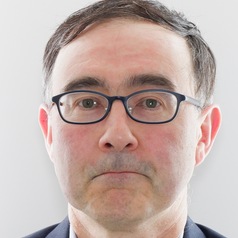
Nicholas Khoo
Associate Professor of International Politics, University of Otago
Nicholas Khoo (PhD, MPhil, Political Science, Columbia University; MA, International Relations, Johns Hopkins University; BA, Economics, University of California, Irvine) is Associate Professor in the Politics Programme, School of Social Sciences, University of Otago in New Zealand.
His research specialization includes: Chinese foreign policy, Asian security, great power politics, security studies, international relations theory, and Cold War history.
Less ![]()

Nicholas Kuzik
Postdoctoral Fellow, CHEO Research Institute, L’Université d’Ottawa/University of Ottawa
Dr. Nicholas (Corey) Kuzik is a post-doctoral fellow with the Healthy Active Living and Obesity (HALO) group under the supervision of Dr. Mark Tremblay. The goal of his research is to improve childhood development through 24-hour movement behaviours. This requires reaching a better understanding of movement behaviours through studying: measurement, analysis, associations with developmental outcomes, and associations with correlates/determinants. Dr. Kuzik completed his MSc and PhD on the topic of movement behaviours in early years children (0-5 years) under the supervision of Dr. Valerie Carson at the University of Alberta.
Less ![]()
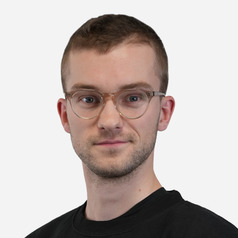
Nicholas Leach
Postdoctoral Researcher, Climate Science, University of Oxford
I am a postdoctoral researcher at Oxford University, having recently completed my PhD as part of the Environmental Research Doctoral Training Partnership there. I reside in the Predictability of Weather and Climate research group, supervised by Antje Weisheimer and Myles Allen. My research explores the use of operational weather forecasting models within the field of extreme event attribution, with a particular focus on heat events and storms. This work touches on themes of numerical weather prediction, attribution of climate change, meteorological drivers of extreme weather and extreme value statistics.
I started out in climate change research during a summer research project (that I would later develop into my masters thesis) investigating a simple method for estimating the remaining global carbon budget. While this particular field is no longer my focus, I still remain involved, especially in the use and development of reduced complexity climate models.
I am also a climate scientist at Climate X, specialising in the quantifying the impact of climate change on storm systems globally. My role involves both assessing how to apply state-of-the art academic research to provide the detailed information on climate risk required by the financial industry, and coming up with novel ways that can improve upon more traditional ways of quantifying extreme weather risk from storm systems. I combine a variety of statistical methods and models with observational data and state-of-the-art physical climate and weather model simulations in my work, and am always interested in new approaches in this space, so if you’re an academic researching physical extreme weather risk and interested in working with industry, please get in touch!
Less ![]()
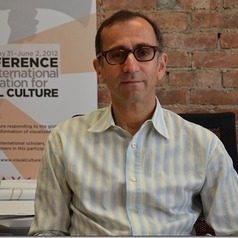
Nicholas Mirzoeff
I am one of the founders of the academic discipline of visual culture. Since 1995, I have published a dozen books which have been translated into Chinese, Spanish, Korean, Italian and other languages. These include An Introduction to Visual Culture and (as editor) The Visual Culture Reader. In 2013, my book The Right to Look: A Counterhistory of Visuality (Duke, 2011) won the Anne Friedberg Award for Innovative Scholarship from the Society of Cinema and Media Studies. My new How To See The World: An Introduction to Images, from Self-Portraits to Selfies, Maps to Movies and More is just out from Basic Books.
Less ![]()

Nicholas Moore
Associate Professor of Medical Laboratory Science, Rush University
Nicholas Moore, PhD, D(ABMM), MLS(ASCP)CM, is a clinical microbiologist and a certified medical laboratory scientist. He received his master’s degree from and has completed his doctoral degree at Rush. His doctoral research studies have focused on the epidemiology of carbapenemases in post-acute care facilities in the Chicago metropolitan region. He is a member of the Chicago Prevention and Intervention Epicenter (C-PIE), in collaboration with the Cook County Health & Hospital System and the Centers for Disease Control and Prevention. C-PIE focuses on understanding the role of the gastrointestinal microbiome in the acquisition of antimicrobial resistant organisms. Moore’s long-term research goals are to remain part of an interdisciplinary research team examining changes and testing interventions to prevent the acquisition of multidrug resistant organisms. His primary teaching responsibilities in the Department of Medical Laboratory Science include serving as the course director of the clinical microbiology course and clinical rotations.
Less ![]()
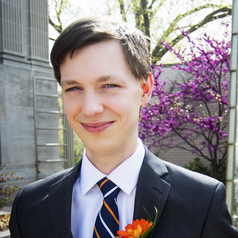
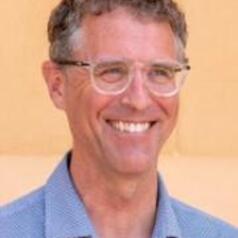
Nicholas Osborne
Associate Professor, School of Public Health, The University of Queensland
Dr Osborne, BSc(Hons), MAgSc, PhD is an epidemiologist and toxicologist with research interests in using environmental epidemiology to examine aetiology and pathological pathways of disease. He has worked on a range of projects examining environmental exposures and health outcomes including exposure to metals, pollen, mould, chronic exposures to low levels of chemicals, pesticide and cyanotoxins. He also has experience examining how exposure to the environment may increase health and wellbeing (green/bluespace and solar irradiance and vitamin D).
He has developed skills in the linkage of environmental and population health data in an interdisciplinary context, and has expertise in design, linkage, hypothesis formulation, analysis, interpretation, translation and dissemination.
He has experience in designing and collecting epidemiological data and initiating studies of primary collected data (HealthIron, HealthNuts, Cornwall Housing Study, Survey of Recreational Water Users, Monitoring of Meniere's Symptoms).
He also has used secondary data from existing cohorts (NHANES, UK Biobank, 1958 Birth Cohort, British Household Survey, Melbourne Collaborative Cohort Study, South Asian Clinical Toxicology Research Collaboration), as well as linkage of previously unconnected "big data" sets in mashups on novel platforms (MEDMI project). He has used traditional statistical methods such as linear/logistic regression, time series analysis, interrupted time series and Cox regression to ascertain associations between exposures and outcomes, as well as integrating confirmatory structured equation modelling with environmental/health data sets to construct conceptual diagrams of associations and assess pathway directions.
He currently researches pollen and health outcomes as well as chronic kidney disease in low to middle income countries.
He has supervised 6 PhD students to completion (2 primary supervisor, 4 co-supervisor) and currently supervises 4 PhD student. He has been associate editor of Archives of Environmental and Occupational Health since 2011 and is on the editorial board of International Journal of Epidemiology, International Journal of Environmental Research and Public Health and Pediatric Allergy, Immunology and Pulmonology. He is a member of Australasian Epidemiology Association, International Society of Environmental Epidemiology and International Epidemiology Association.
He has previously worked at the Universities of NSW, Sydney, Exeter, Melbourne, Portsmouth, Queensland and Flinders, the Murdoch Children's Research Institute and the Cancer Council Victoria. He completed his PhD at the School of Population Health, University of Queensland/National Research Centre of Environmental Toxicology working on the toxicology and public health effects of cyanobacterial toxins in southeast Queensland.
Less ![]()
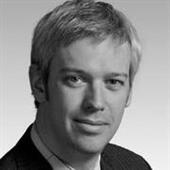
Nicholas Rattenbury
Associate Professor in Physics, University of Auckland, Waipapa Taumata Rau
Less ![]()
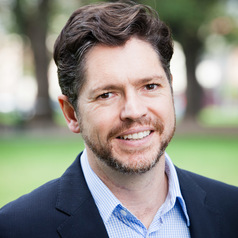
Nicholas Reece
Principal Fellow, Melbourne School of Government, The University of Melbourne
Nicholas Reece is a Principal Fellow at the Melbourne School of Government and the School of Social and Political Sciences at the University of Melbourne.
A former lawyer, journalist, ALP party secretary and senior adviser to a Prime Minister and two State Premiers, Nick has a passion for public policy and politics.
Nick is also a Director of the global men's health movement Movember and the social enterprise, The Big Issue.
Less ![]()
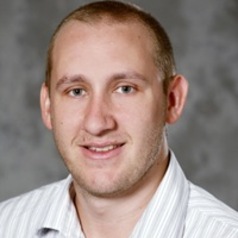
Nicholas Rohde
Dr Rohde currently teaches in Statistics and Econometrics at Griffith University, and has research experience Inequality and income distribution.
Less ![]()
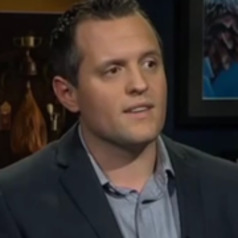
Nicholas Ross Smith
Visiting scholar, University of Auckland
Dr Smith is an International Relations expert with a keen focus on geopolitical and geoeconomic forces and their implications for foreign policy decision-making. His most recent research concerned competition between the EU and Russia in Ukraine, which spawned a number of journal articles and a forthcoming book on the Ukraine crisis (to be published with Edward Elgar, December 2016). Future research will concern the competitive geoeconomic environment of the Asia-Pacific and its challenges and opportunities for Australia and New Zealand.
Less ![]()
- Market Data





















